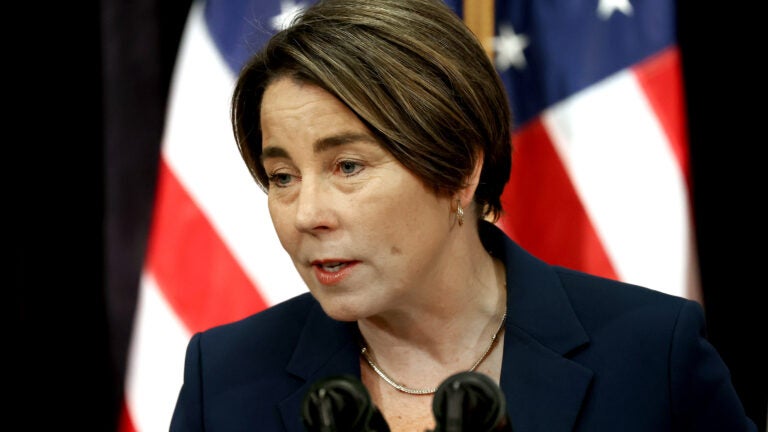Boston.com Today
Sign up to receive the latest headlines in your inbox each morning.

Massachusetts Gov. Maura Healey said Wednesday that she opposes Question 5, a ballot measure that would gradually phase out the tipped minimum wage of $6.75, plus tips, in favor of paying servers and bartenders the state minimum wage of $15 an hour.
Healey, who said she worked as a server sporadically from the age of 13 to 24, said her opposition to the measure is rooted in recent conversations with servers, bartenders, restaurant owners, and others in the industry. During her appearance on GBH’s “Boston Public Radio,” Healey encouraged members of the public to do the same and seek out similar conversations before casting their vote.
The governor shared concerns about the possibility that restaurants will face rising costs if Question 5 is approved, and said that the ramifications should be taken seriously.
“I think it’s important to vote ‘no’ on this because I think you run the risk of closing restaurants and putting these workers out of work, actually, because the restaurant owners I speak [to] are not going to be able to afford this, and they’re going to end up laying off people and in some instances some have told me they’re just going to shut down,” Healey said.
Opponents to the measure, such as Massachusetts Restaurants United, make a similar argument: that many restaurants operate with razor-thin margins and that they would be forced to increase fees and menu prices if Question 5 is passed. This, they say, would eventually result in businesses shutting their doors and workers being let go.
Healey characterized the ballot question as a “well intentioned effort brought by out of state interests.” This was an apparent reference to One Fair Wage, a national organization that works to end tipped minimum wages across the country. One Fair Wage has notched legislative victories in places like Washington, D.C., and Chicago.
One Fair Wage and other supporters say that their efforts would give restaurant workers greater financial stability and add predictability to their pay, which is essential in expensive places like Massachusetts. They also argue that a change is needed to prevent wage theft.
After researching the topic, the Center for State Policy Analysis at Tufts University concluded that eliminating the tipped minimum wage would likely increase earnings for restaurant workers. But researchers also found that businesses would face higher costs because they would have to cover the full minimum wage. As such, they would likely compensate by increasing prices, adding service fees, and reducing hiring. The Tufts center releases its findings as a resource for voters and does not take positions either for or against the ballot questions.
What voters will ultimately decide remains difficult to predict less than a month from Election Day. A recent University of Massachusetts Amherst/WCVB poll found that 61% of respondents favored the measure, while 27% said they were opposed and 13% said they were unsure. However, a Boston Globe/Suffolk University poll from early October found that just under 40% of respondents supported Question 5, while almost 52% opposed it.
“As the attorney general, I fought hard for workplace protections, for fair wages, for benefits, for all that,” Healy said on GBH. “So I am certainly in this camp, but I think this actually harms that effort and that’s why I feel very strongly about this particular question.”
Sign up to receive the latest headlines in your inbox each morning.